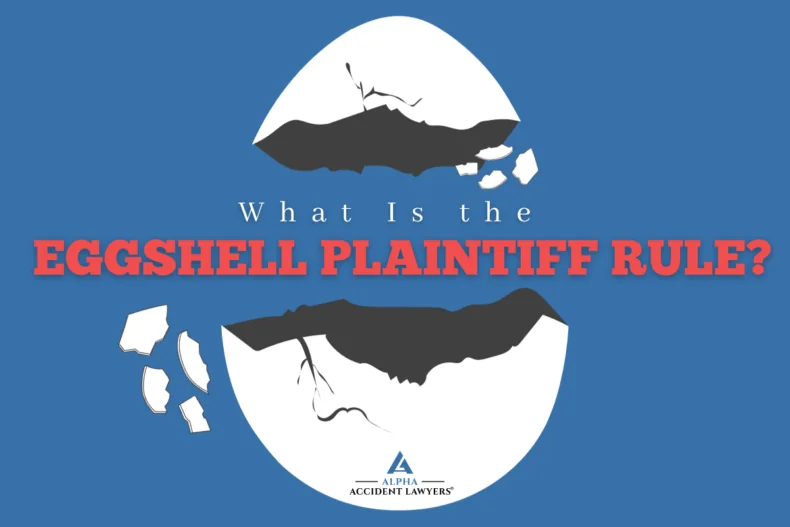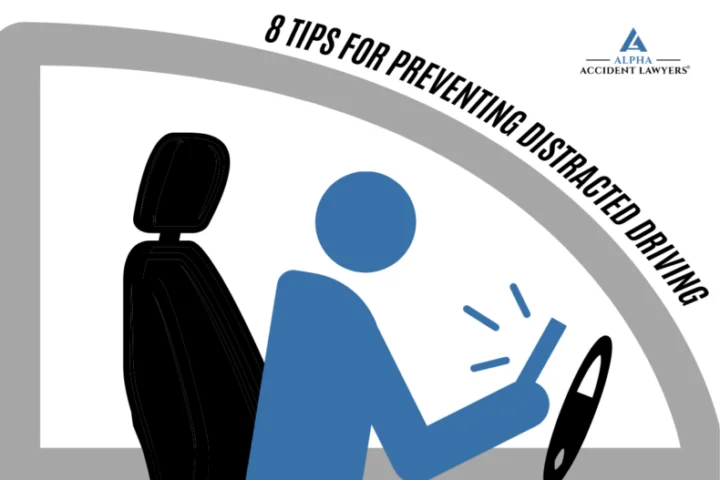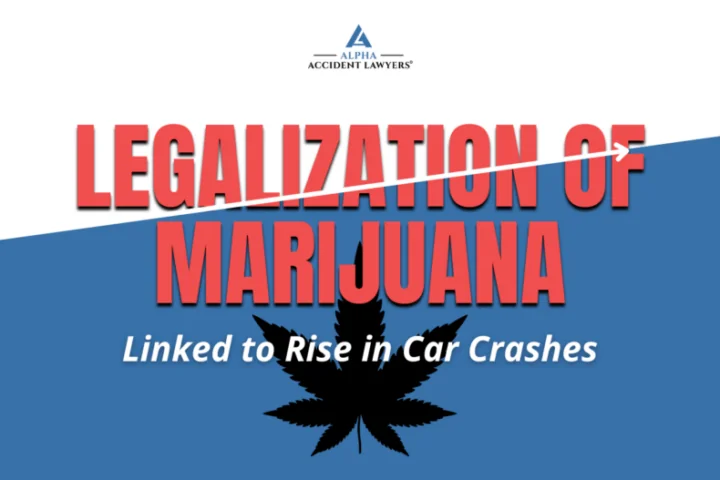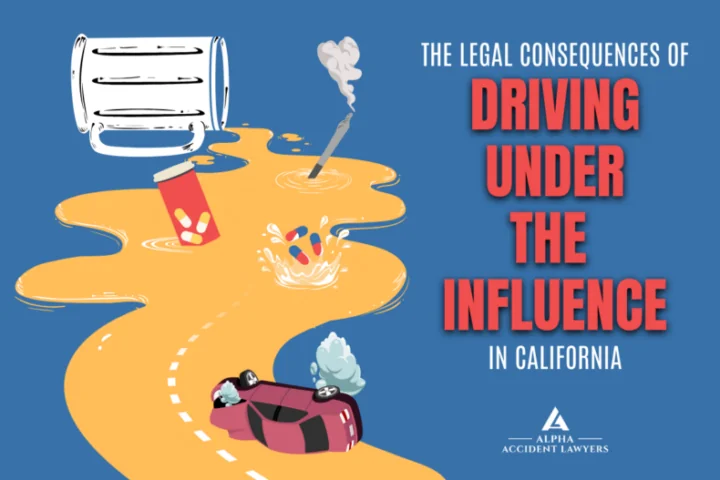What Is the Eggshell Skull Rule?
After an auto accident, injured victims may wonder if their pre-existing conditions could affect their ability to recover full and fair compensation for their damages. The Eggshell Skull Rule, often used interchangeably with the Eggshell Plaintiff Rule, is a legal doctrine recognizing how pre-existing conditions make accident victims more susceptible to sustaining severe injury.
The Eggshell Plaintiff Rule Explained
The term “eggshell” implies that the defendant must “take the plaintiff as they are,” regardless of any pre-existing conditions or prior injuries that make them more susceptible to a more severe injury. The Eggshell Skull Rule ensures that a victim’s pre-existing conditions cannot interfere with recovering financial compensation from the negligent party.
Aggravation of a Pre-Existing Injury
When an individual with a pre-existing condition is injured, and that injury aggravates or worsens their existing medical condition, the defendant can still be held responsible.
This legal principle emphasizes that the defendant is liable for the entire scope of the injuries, regardless of whether the average person might have suffered less harm. In cases where a defendant’s negligence contributes to the worsening of a pre-existing injury, the Eggshell Plaintiff Rule ensures that the injured party is entitled to compensation that reflects the full extent of their damages.
For example, if an individual with a pre-existing back condition is involved in a car accident, and the accident worsens their back injury, the Eggshell Plaintiff Rule would hold the at-fault party responsible for the damage. This ensures that the injured party receives fair compensation for the entire impact of the incident.
How Is the Eggshell Skull Rule Applied to Personal Injury Claims?
In 2021, medically consulted injuries in traffic accidents totaled $5.4 million and the auto accident injury costs were estimated to be over $498 billion. A personal injury victim may suffer more severe injuries in an accident if they have a pre-existing injury or condition. In personal injury claims, the eggshell skull rule emphasizes that a defendant must take responsibility for all the consequences of their negligent actions. Defendants cannot argue that they were unaware of the plaintiff’s pre-existing condition or vulnerability as a means to minimize their liability.
The Eggshell Plaintiff Rule plays a crucial role in determining liability, especially when a pre-existing condition is involved. The plaintiff typically must demonstrate that the defendant acted negligently, breaching a duty of care owed to them. This breach of duty must be directly linked to the injuries sustained.
Can the Eggshell Plaintiff Rule Be Applied to Physical and Emotional Damages?
The Eggshell Plaintiff Rule is not limited to addressing only physical injuries—it also extends to emotional and psychological damages. The eggshell skull rule recognizes that individuals with pre-existing mental health conditions or emotional vulnerabilities may suffer more profoundly from the emotional distress caused by a defendant’s negligent actions.
For example, if an individual with a pre-existing heart condition sustains injuries in a truck accident, and the stress of the incident exacerbates their heart condition, the defendant is liable for the full scope of physical harm.
In cases involving emotional damages, the Eggshell Skull Rule states that a defendant is held accountable for the exacerbation of pre-existing emotional conditions. For instance, if a person with a history of anxiety is involved in a traumatic event due to someone else’s negligence, and their anxiety intensifies, the responsible party is liable for the heightened emotional distress.
Economic Damages
Economic damages in personal injury cases refer to the financial losses incurred by the injured party as a result of the incident. Economic damages can include the following:
Medical expenses: This can include costs for medical treatments, surgeries, medications, physical therapy, and rehabilitation.
Lost earnings: If a pre-existing condition exacerbates the impact on the individual’s ability to work, the defendant can be held responsible for the complete loss of earnings, considering the unique circumstances of the injured party.
Property damage: In cases where personal property is damaged because of the defendant’s negligence, economic damages cover the cost of repairing or replacing the damaged property.
Non-Economic Damages
The Eggshell Plaintiff Rule extends to non-economic damages, ensuring that individuals with pre-existing conditions receive fair compensation for the intangible harm they endure. Non-economic damages can include:
Pain and suffering: Individuals with pre-existing physical or emotional conditions can recover damages for pain and suffering due to a defendant’s negligence.
Emotional distress: Compensation for emotional distress covers the mental anguish, anxiety, and trauma experienced by the plaintiff.
Loss of enjoyment of life: Non-economic damages also include compensation for the loss of enjoyment of life, reflecting the diminished quality of life experienced by the injured party.
How a Personal Injury Lawyer Can Help You Recover Maximum Compensation
Navigating a personal injury claim, especially when the Eggshell Plaintiff Rule is applicable, can be complex and challenging. Seeking the assistance of a skilled personal injury lawyer is essential for maximizing your chances of recovering the compensation you deserve. Here’s how a lawyer can help you throughout the legal process:
- Auto accident lawyers possess in-depth knowledge of personal injury laws, including the Eggshell Plaintiff Rule. They understand how to apply these legal principles to your specific situation and will fight for full and fair compensation.
- An experienced car accident lawyer can help you gather medical records, police reports, expert testimonies, or other documentation related to the accident.
- A personal injury attorney will leverage their negotiation skills to advocate for your rights and secure a fair settlement that reflects the full extent of your damages.
- Personal injury lawyers have connections with medical experts, psychologists, and accident reconstruction experts who can provide insights to support your personal injury case.
- An experienced trial lawyer will represent you in court, presenting a compelling case to seek maximum compensation for your injuries.
Call Our Auto Accident Lawyers for a Free Consultation
If you’ve been involved in an auto accident and are uncertain about your rights and the potential application of the Eggshell Plaintiff Rule, seeking legal advice is crucial. A personal injury lawyer can help you hold the at-fault party liable for the full extent of the injuries and damages caused. At Alpha Accident Lawyers, our team of experienced auto accident lawyers is here to assess the details of your case and offer guidance on the best course of action. Call us today to schedule a free case review.
START YOUR FREE CONSULTATION





